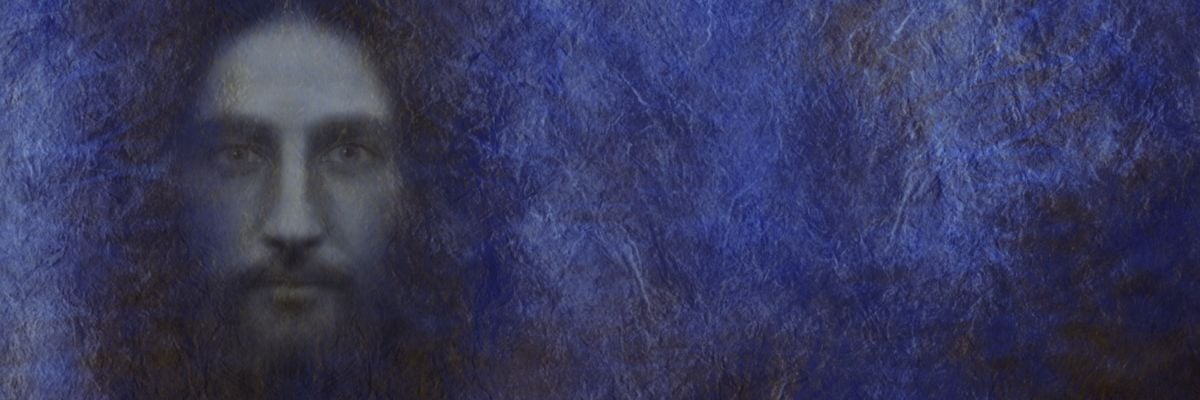
The central belief of Jehovah’s Witnesses is that there is one God, and his name is Jehovah. According to the Jehovah’s Witnesses, Jehovah created a “Son” and it was through this Son that he created the rest of the world. This Son has the same “spirit nature” as his Father, which makes him “a God” or “a mighty God.”
However, the Son is still a creation of the Father, and so he is not the “true God,” or he is not the “almighty God.” Jehovah’s Witnesses say those titles belong only to Jehovah, not Jesus. As a result, Jehovah’s Witnesses pray only to Jehovah and never to the Son. Jehovah’s Witnesses also believe that, before he became a man, Jesus was Michael the Archangel, and ever since his ascension into heaven Jesus has resumed the name of Michael.
The Witnesses believe Jesus is the highest or most glorious of God’s creatures and, since they consider archangels to be the highest of the angels, Jehovah’s Witnesses believe Jesus must be an archangel. According to one of their magazines, “The Bible describes Michael as the archangel, implying that he alone bears that designation. Hence, it is reasonable to conclude that Jehovah God has delegated to one, and only one, of his heavenly creatures full authority over all other angels” (Who is Michael the Archangel?, 2002).
If Jesus is an archangel, and Michael is the only archangel, doesn’t it follow that Jesus and Michael are the same person? No, because calling Michael the archangel in Jude 1:9 no more proves that Michael is the only archangel anymore than calling Sonic the Hedgehog proves he is the only hedgehog. In fact, the Bible explicitly teaches that Jesus is superior to all the angels, including the archangels.
Hebrews 1:4-6 says Jesus has
become as much superior to angels as the name he has obtained is more excellent than theirs. For to what angel did God ever say, ‘Thou art my Son, today I have begotten thee’? Or again, ‘I will be to him a father, and he shall be to me a son’? And again, when he brings the first-born into the world, he says, ‘Let all God’s angels worship him’” (emphasis added).
Angels don’t worship other angels; they worship only God. Since Jehovah’s Witnesses believe Jesus is Michael the Archangel, their New World Translation of the Bible avoids the situation of angels worshipping another angel by rendering this passage, “And let all of God’s angels do obeisance to him.”
Obeisance means to bow down in respect for another person. In Exodus 18:7, Moses made obeisance to his father-in-law, Jethro; and in 1 Kings 1:16, Bathsheba bowed before King David. These instances of obeisance merely describe paying solemn respect to someone. They do not describe the kind of worship one would give to God.
The Greek word in Hebrews 1:6 that Jehovah’s Witnesses translate “obeisance” is proskuneo. This word can refer to simple bowing or a showing a sign of respect to someone in authority. But it can also refer to the kind of worship given to God alone. The New World Translation (NWT) of the Bible used by Jehovah’s Witnesses renders proskuneo as “worship” when the verb has God the Father as its direct object, and even when the word is used to describe the worship of a false god, such as the Beast in Revelation 13. But when proskuneo is used of Jesus, the NWT always translates it as “obeisance” and never as “worship.”
While this may be appropriate in some verses that describe only paying respect to Jesus, there are other verses where the word worship seems to be the most appropriate word to use, such as Luke 24:52 and Matthew 28:9, which refer to the apostles worshipping Jesus after his resurrection; or Matthew 14:32, where the apostles worship Jesus after he calms the storm and they say, “Truly you are the Son of God.”
The Jehovah’s Witnesses absolute use of obeisance in reference to Jesus is most likely driven by their theology and not by a careful study of the texts describing worship of Jesus as a divine person.
Finally, whenever an apostle or angel is mistaken for God in the New Testament, the worshipped person corrects those who are worshipping him. When the Greeks in Lystra mistook Paul and Barnabas for the gods Zeus and Hermes, the two men tore their garments. They reminded the crowd that they were humans and implored them to worship the true God who made heaven and earth (Acts 14:14–15). In Revelation 19:10, the apostle John falls at the feet of an angel to worship him, but the angel tells him, “You must not do that!” Yet Jesus did not correct Thomas when he referred to Jesus as “my Lord and my God!” (John 20:28).
This should lead us to the conclusion that, when it came to Thomas’s statement of faith, there was nothing to be corrected. If that is the case, then we should imitate Thomas and not be afraid to address Jesus as our “Lord and God” as well.



